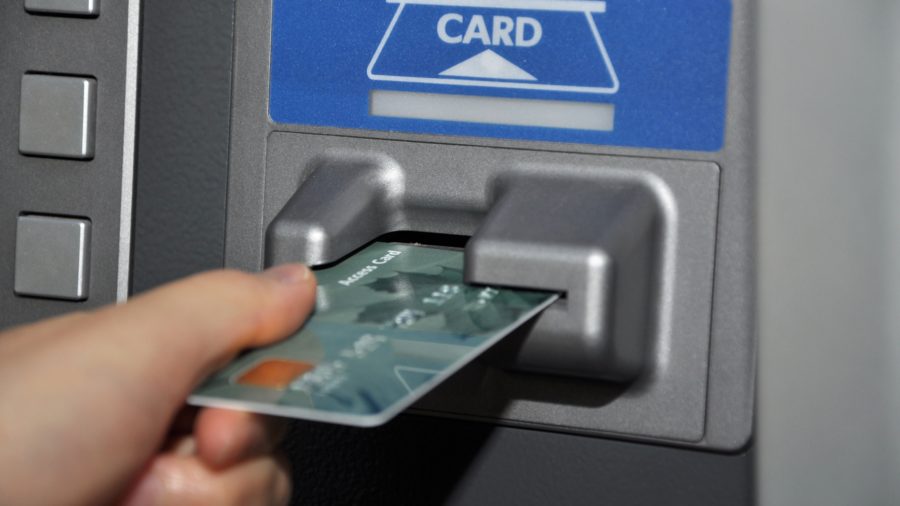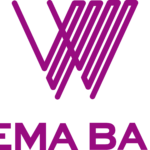Banking
CBN to Replace ATM Card Pin with Biometrics

By Modupe Gbadeyanka
Plans are underway to replace the use of Personal Identification Number (PIN) for transactions on the Automated Teller Machine (ATM) cards in Nigeria with biometrics.
According to the Director of Banking and Payment System at the Central Bank of Nigeria (CBN), Mr ‘Dipo Fatokun, this move will reduce the rate of fraud cases attributed to authorised use of ATM cards by a third party.
Mr Fatokun, who is also Chairman of the Nigeria Electronic Fraud Forum (NeFF), stated that with biometrics for ATM transactions will make it impossible for a third party to use ATM cards to withdraw funds without the consent of the card owner.
“Your pin and account details are not supposed to be disclosed to third person but as you rightly said, we have some people who are not literate or incapacitated and that makes them to disclosing their details to third party,” he disclosed at the 2017 annual retreat of NeFF in Ibadan, Oyo State last weekend.
Mr Fatokun noted that sharing ATM pin codes with a third party was against the policy of banking sector but could not be avoided in some circumstances especially in situations where the account owner is not literate or incapacitated.
“What we are canvassing is that in a time soon to come, with the BVN in place, biometrics will be used for transactions on ATM,” he stated.
“That means if you want to transact with your ATM, you will need to use your biometrics. There is no way you can give your finger to a third party. If that is enabling, it will make our system to be more secure and make all our transactions to be validated.
“But biometric electronic devices are very expensive because of the technologies involved but I am sure, we shall get there soon,” Mr Fatokun added.
Banking
Sterling HoldCo Improves Post-Tax Profit by 157% in H1 2025

By Aduragbemi Omiyale
Between January and June 2025, Sterling Financial Holdings Company Plc posted a profit after tax of N41.8 billion, which is about 157 per cent higher than the N16.3 billion recorded in the corresponding period of 2024, with its earnings per share (EPS) growing to 89 Kobo from 56 Kobo.
In his unaudited results for the half-year ended June 30, 2025, the financial service provider demonstrated continued momentum in revenue growth, operational efficiency, and capital position, as its gross earnings climbed by 39.7 per cent to N212.6 billion from N152.2 billion in H1 2024, while interest income rose by 38.3 per cent to N167.16 billion, and non-interest income increased by 45 per cent to N45.45 billion, attesting to its strategic focus on revenue diversification.
Additionally, the cost-to-income ratio improved to 64.5 per cent from 75.7 per cent, underscoring the benefits of ongoing cost optimisation measures.
Further, total assets expanded on a year-to-date basis by 15.3 per cent to N4.08 trillion from N3.54 trillion in December 2024, while shareholders’ funds were up 22.9 per cent for the period, reflecting the impact of recent recapitalisation and healthy retained earnings.
The results showed that asset quality also improved, with the non-performing loan ratio declining to 5.1 per cent from 5.4 per cent at the close of the 2024 financial year.
The organisation’s strong showing in the first half of the year followed a successful private placement and rights issue, through which approximately N100 billion was raised, with the proceeds used for the full recapitalisation of Alternative Bank and strengthening of the capital base of Sterling Bank, its flagship subsidiary.
“Our outstanding half-year results are the product of clear strategic focus and a relentless drive to create lasting value for our stakeholders.
“Our performance reflects not just robust growth in core income lines, but also our success in building a resilient and agile business model, capable of delivering superior returns even in a dynamic macroeconomic environment.
“As we continue to diversify our income streams and invest in operational efficiency, we remain steadfast in our commitment to responsible growth, prudent risk management, and sustainable impact.
“Looking ahead to the next phase of our capital programme, we see tremendous opportunity to deepen our footprint in Nigeria’s growth sectors and to catalyse meaningful progress for our customers, communities, and the broader economy,” the chief executive of Sterling HoldCo, Yemi Odubiyi, stated.
Banking
Wema Bank Grows Pre-Tax Profit by 231% in H1 2025, NPL at 3.17%

By Aduragbemi Omiyale
In the first half of 2025, Nigeria’s oldest indigenous bank, Wema Bank Plc, increased its profit after tax by 231 per cent to N101.2 billion from N30.55 billion in the same period of last year.
The pioneer of Africa’s first fully digital bank, ALAT, disclosed this information in its unaudited consolidated financial statements for the period ended June 30, 2025.
In the result submitted to the Nigerian Exchange (NGX) Limited, the company its gross earnings also improved by 70 per cent to N303.2 billion from N178.6 billion in the first half of 2024, with interest income expanding by 65 per cent to N240.1 billion from N145.5 billion and the non-interest income growing by 91 per cent to N63.08 billion from N33.10 billion in H1 2024.
The financial documents showed that the balance sheet of Wema Bank remained robust and well-structured, with total assets up to N3.963 trillion in H1 2025 from N3.585 trillion in the same period of last year.
Further, deposit base increased by 3 per cent on a year-to-date basis to N2.60 trillion from N2.523 trillion in FY 2024, loans and advances soared by 19 per cent to N1.426 trillion from N1.201trillion in FY 2024, and the non-performing loan (NPL) ratio stood at 3.17 per cent as at H1 2025, reflecting its continued focus on maintaining asset quality.
Further, the Return on Average Equity (ROAE) grew by 60.40 per cent, the Return on Average Assets (ROAA) increased by 4.64 per cent, the Capital Adequacy Ratio (CAR) was at 13.68 per cent, and the Cost-to-Income Ratio gained 47.55 per cent.
“Three years ago, we took our pre-tax profit from N14.75 billion in 2022 to N43.59 billion in 2023, and in 2024, our PBT stood at an impressive N102 billion.
“Now, just halfway through 2025, we have achieved over 99 per cent of our 2024 full-year PBT in just H1, and for us, this is just a starting point,” the chief executive of Wema Bank, Mr Moruf Oseni, stated.
“As a bank, we have remained committed to surpassing expectations and redefining limitations and this is a standard we are prepared to uphold relentlessly.
“Wema Bank is the Bank that works for all and we will continue to pull all stops in delivering optimum value to every stakeholder, from our shareholders to customers, employees, partners, regulators, and every person and institution who has played a part in our 80-year journey and beyond,” he added.
Banking
Fidelity Bank ‘Lighting Young Minds’ With Solar-Powered School Bags

By Modupe Gbadeyanka
Fidelity Bank Plc under the leadership of Mrs Nneka Onyeali-Ikpe is doing everything possible to improve the human capacity index of Nigeria by investing in education.
Recently, the financial institution donated about 1,000 solar-powered school bags to pupils in public primary schools in Ogun State.
The gesture was through its Lighting Young Minds initiative developed to improve access to quality education across the country.
“At Fidelity Bank, we see education as not only a means of knowledge transfer, but as a transformative force—a bridge to opportunity,” Mrs Onyeali-Ikpe said at the unveiled of the programme in Abeokuta, the Ogun State capital, on Friday, July 4, 2025.
The initiative reflects the bank’s commitment to tackling systemic barriers to learning—particularly the challenge of limited electricity in underserved communities, and it specifically aligns with one of the lender’s core Corporate Social Responsibility (CSR) pillars of expanding access to quality education.
The bank executive explained that through the company’s SWEETA initiative, 1,000 solar-powered school bags are being donated to enable children to study safely at night, without the dangers associated with candles or kerosene lamps.
“Beyond helping them improve their academic performance,” she added, “we want to inspire young minds to see that innovation and resilience can light the path to a better future.”
The chief executive also highlighted Fidelity Bank’s broader investment in education, such as the SWEETA School Fees Support Initiative, which has disbursed over N8 billion in tuition support to eligible customers; the Read2Lead Writing Competition, which has impacted more than 3,000 students across Nigeria through prizes and grants; the Back-to-School Loans for parents; the Fidelity EduLoan which helps schools with infrastructure upgrades and asset acquisition; as well as the Green Energy Financing Program, which complements the solar-powered bag initiative by promoting sustainable energy use in education via solar energy.
The solar-powered bags—designated for schools across all 20 local government areas in Ogun State—were officially unveiled by Mrs Onyeali-Ikpe alongside the First Lady of Ogun State, Mrs Bamidele Abiodun.
The wife of Governor Dapo Abiodun praised the project, calling it a crucial and timely intervention in child development and foundational learning.
“This initiative directly enhances learning for children in communities with limited electricity. It’s a brilliant example of how simple, practical innovations can drive profound change—keeping children in school and helping them thrive,” she said.
She further noted its alignment with United Nations Sustainable Development Goal 4, which promotes inclusive and equitable quality education for all, and called on other private sector players to emulate Fidelity Bank’s leadership in social impact.
The Lighting Young Minds initiative is an extension of Fidelity Bank’s mission of empowering Nigeria’s future generations through inclusive, sustainable, and forward-thinking educational solutions. As the bank continues to bridge opportunity gaps, it remains steadfast in its pursuit of a brighter future for children across the country.
-

 Feature/OPED6 years ago
Feature/OPED6 years agoDavos was Different this year
-
Travel/Tourism9 years ago
Lagos Seals Western Lodge Hotel In Ikorodu
-

 Showbiz3 years ago
Showbiz3 years agoEstranged Lover Releases Videos of Empress Njamah Bathing
-

 Banking7 years ago
Banking7 years agoSort Codes of GTBank Branches in Nigeria
-

 Economy2 years ago
Economy2 years agoSubsidy Removal: CNG at N130 Per Litre Cheaper Than Petrol—IPMAN
-

 Banking2 years ago
Banking2 years agoFirst Bank Announces Planned Downtime
-

 Sports2 years ago
Sports2 years agoHighest Paid Nigerian Footballer – How Much Do Nigerian Footballers Earn
-

 Technology5 years ago
Technology5 years agoHow To Link Your MTN, Airtel, Glo, 9mobile Lines to NIN














